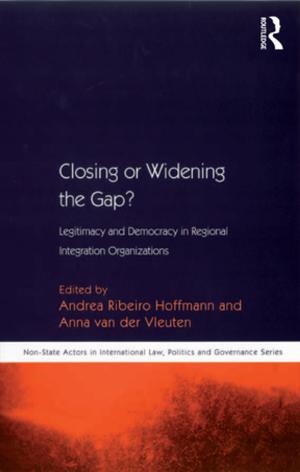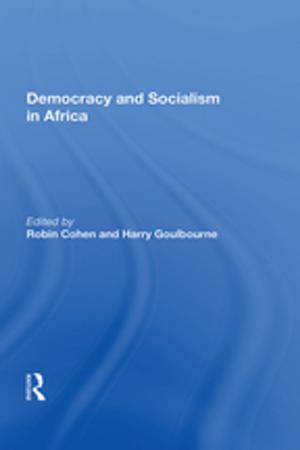World Yearbook of Education 2010
Education and the Arab 'World': Political Projects, Struggles, and Geometries of Power
Nonfiction, Reference & Language, Education & Teaching, Educational Theory, Educational Reform| Author: | ISBN: | 9781135177041 | |
| Publisher: | Taylor and Francis | Publication: | February 15, 2010 |
| Imprint: | Routledge | Language: | English |
| Author: | |
| ISBN: | 9781135177041 |
| Publisher: | Taylor and Francis |
| Publication: | February 15, 2010 |
| Imprint: | Routledge |
| Language: | English |
The World Yearbook of Education 2010: Education and the Arab 'World': Political Projects, Struggles, and Geometries of Power, strives to do justice to the complex processes and dynamics behind the world of Arab education. Western interest in all things ‘Arab’ has greatly increased over the course of the decade, but this interest runs the risk of forgetting that the Arab world is positioned within wider contexts of regional, geopolitical, and global processes.
This volume examines Arab education in a range of contexts – regional, diasporic, and trans-national – to better understand how the field of Arab education is formed through local, regional, geopolitical and global engagements and resonances. In doing so, contributors from a range of disciplines open critical conversations about the intersections of history, culture, geopolitics, policy, and education. The World Yearbook of Education 2010 offers new conceptual and empirical approaches that deal with some of the often-neglected aspects of the study of Arab education: contested political projects; struggles towards emancipation, recognition and liberation; and a larger concern for social justice, equity, and political inclusion.
The World Yearbook of Education 2010: Education and the Arab 'World': Political Projects, Struggles, and Geometries of Power, strives to do justice to the complex processes and dynamics behind the world of Arab education. Western interest in all things ‘Arab’ has greatly increased over the course of the decade, but this interest runs the risk of forgetting that the Arab world is positioned within wider contexts of regional, geopolitical, and global processes.
This volume examines Arab education in a range of contexts – regional, diasporic, and trans-national – to better understand how the field of Arab education is formed through local, regional, geopolitical and global engagements and resonances. In doing so, contributors from a range of disciplines open critical conversations about the intersections of history, culture, geopolitics, policy, and education. The World Yearbook of Education 2010 offers new conceptual and empirical approaches that deal with some of the often-neglected aspects of the study of Arab education: contested political projects; struggles towards emancipation, recognition and liberation; and a larger concern for social justice, equity, and political inclusion.















